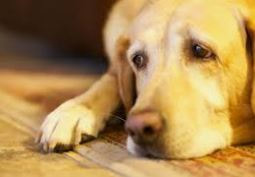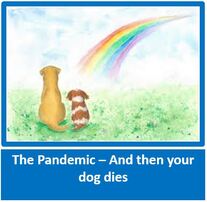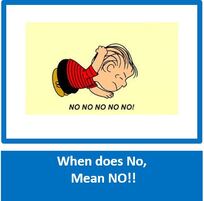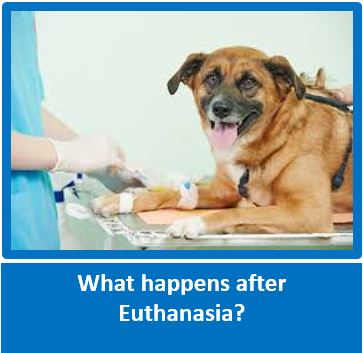
Losing a beloved pet can be absolutely heart breaking. Our pets give us so much love, and are faithful friends to the end. It seems only right, that when their time comes, we respect all that they have done for us and acknowledge how they have contributed to our lives. Do have a look at our website for all the options we offer, and if you have any questions, do not hesitate to contact us.
Can the loss of one of your pets affect your other pets in the home?
This was forwarded to us from a reader and was written by Jean Marie Bauhaus

It goes without saying that the loss of a pet comes as a hard blow to you and your family. But what about the non-human members of your family? It's well-documented that animals are capable of experiencing grief and loss, so it should come as no surprise that the death of a pet has an impact on the remaining animals in your household. Keep reading to learn how you can help your grieving pets in the event that your family is faced with such a loss.
Grief in Dogs and Cats
It's not known for certain whether dogs or cats have the capacity to understand the finality and significance of the death of a pet, and any evidence that they do is purely anecdotal, says PetPlace. Cats and dogs tend to notice when a companion is no longer showing up in their lives, and they often react to that absence in a way that makes it clear that they miss their friend. Even if your pets weren't close and the surviving pet doesn't appear to notice the loss of a pet, dogs and cats are extremely sensitive to the emotional states of their human guardians and may become sad or despondent because they're sensing those emotions in their pet parents. Dogs can have a particularly rough time adjusting to a change in the family makeup because of their pack-oriented nature, says PetsBest. Dogs tend to see the family, including other pets, as a unit and come to understand their position and role in relation to the rest of the pack. When another pack member dies, this may leave your dog feeling uncertain about his role and how he fits in.
How to Recognize a Grieving Pet
Individual dogs and cats react to loss in different ways. Just as with people, there is no "right" or "wrong" way for your pet to grieve. Some pets may not appear to notice the absence of the deceased, while some may appear to feel the loss quite heavily. In general, here are some signs that your pet might be struggling with grief:
Helping Your Grieving Pet
While it's tempting to comfort your pets when they're showing signs of hurting, it's important that you don't try to soothe them while they're engaging in unwanted behaviors. Petting or speaking gently to your dog while he's whining or pacing, for example, will only reinforce this behavior, causing it to continue well past the point that he knows why he's doing it. As hard as it may be to do so, it's best to ignore such behavior. Instead, choose times when your pets are being quiet and give them plenty of attention and reassurance.
Here are some other things you can do to help your grieving pet:
Grief in Dogs and Cats
It's not known for certain whether dogs or cats have the capacity to understand the finality and significance of the death of a pet, and any evidence that they do is purely anecdotal, says PetPlace. Cats and dogs tend to notice when a companion is no longer showing up in their lives, and they often react to that absence in a way that makes it clear that they miss their friend. Even if your pets weren't close and the surviving pet doesn't appear to notice the loss of a pet, dogs and cats are extremely sensitive to the emotional states of their human guardians and may become sad or despondent because they're sensing those emotions in their pet parents. Dogs can have a particularly rough time adjusting to a change in the family makeup because of their pack-oriented nature, says PetsBest. Dogs tend to see the family, including other pets, as a unit and come to understand their position and role in relation to the rest of the pack. When another pack member dies, this may leave your dog feeling uncertain about his role and how he fits in.
How to Recognize a Grieving Pet
Individual dogs and cats react to loss in different ways. Just as with people, there is no "right" or "wrong" way for your pet to grieve. Some pets may not appear to notice the absence of the deceased, while some may appear to feel the loss quite heavily. In general, here are some signs that your pet might be struggling with grief:
- Changes in appetite
- Acting withdrawn or despondent
- Whining or howling in dogs, or yowling and crying in cats
- Changes in personality; your aloof cat suddenly wants lots of attention, or vice versa
- Pacing or searching the house for the lost pet
- Hiding from or avoiding other family members
- Changes in grooming or bathroom habits, especially in cats
Helping Your Grieving Pet
While it's tempting to comfort your pets when they're showing signs of hurting, it's important that you don't try to soothe them while they're engaging in unwanted behaviors. Petting or speaking gently to your dog while he's whining or pacing, for example, will only reinforce this behavior, causing it to continue well past the point that he knows why he's doing it. As hard as it may be to do so, it's best to ignore such behavior. Instead, choose times when your pets are being quiet and give them plenty of attention and reassurance.
Here are some other things you can do to help your grieving pet:
- Stay positive: As hard as it is for you to cope with your own loss, talk to your remaining pets in a calm and upbeat voice as often as possible.
- Engage in new activities: Giving your pets something new to learn or focus on may help distract them from the loss and the uncertainty surrounding it. Dogs, especially, benefit from learning something new that will give them confidence in their pack position.
- Do more of what your pets already love to do. Getting to do something fun and enjoyable with you can go a long way toward helping your pet cope — and will help you feel better, too.
- Talk to your veterinarian. If your pets show signs of separation anxiety or depression that don't improve on their own, contact your vet.




